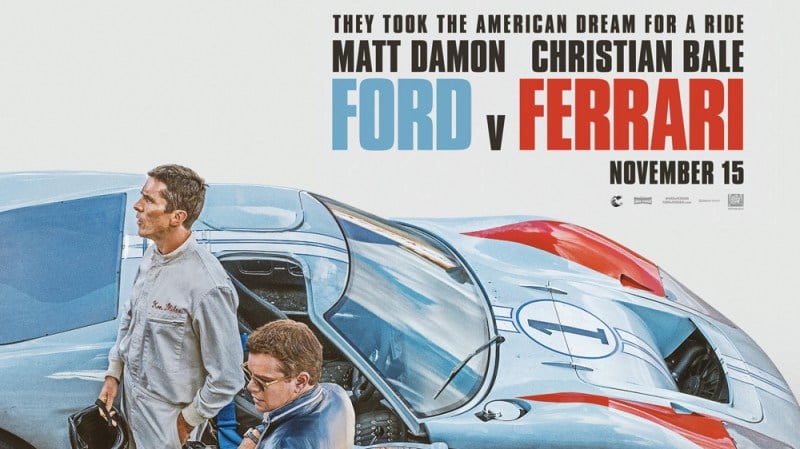“There’s a point at 7,000 RPMs where everything fades. The machine becomes weightless. It disappears. All that’s left, a body moving through space, and time. At 7,000 RPM — that’s where you meet it. That’s where it waits for you,” says Carroll Shelby in “Ford v Ferrari.” The film’s two-and-a-half-hour runtime speeds past just like the fabled sportscars it chronicles.
James Mangold’s “Ford v Ferrari” is as straightforward as its title, propelled by its simple yet satisfying storyline that’s easy to follow for race enthusiasts and ignoramuses alike. At the core of the plot — which balances old cinema storytelling with adrenaline-filled action — is the us-versus-them dynamic that fuels contention. There’s the obvious rivalry: that of the voguish, cavalier designers at Ferrari and the more gravelly forces at Ford. But the real struggle is more subliminal: a tale of greed and triumph where bureaucrats in tailored suits at Ford butt heads with greasy oddballs who run circles around the track. Of course, conflicts brewing behind the scenes culminate at the end of the film, when Ferrari and Ford go head-to-head at a race called 24 Hours of Le Mans.
Yet within this plot-driven, flesh-and-blood engine of a film, there’s still enough time to get to know the two charismatic leads. We’re first introduced to retired Le Mans champion-turned-engineer Carroll Shelby, portrayed by Matt Damon, who holds onto more than just the character’s Texas twang. Damon brings heart to the role, hanging tight to Shelby’s bravado, his knack for quick-thinking and, most importantly, his deep-seated insecurity about the condition that’s kept his hands off the wheel.
In the film, Shelby meets Lee Iacocca and Henry Ford II, who contract him to build them the car that can take the trophy. Shelby agrees and tells them that he has the perfect driver: maverick Ken Miles, a Brit with a dogged attitude far from the bland steadfastness of Ford. “He’s difficult, but good,” one character explains about Miles, who is portrayed by Christian Bale. Bale not only brings physicality — coming out of “Vice” with a leaner look built for speed — but also searing wit and unnerving intensity that’s visible even under his helmet. While like oil and vinegar, Bale’s Miles and Damon’s Shelby and have that special friendship that may remind you of DiCaprio’s and Pitt’s characters in “Once Upon a Time in Hollywood.” They both love racing, but when it comes to their main conflict of maintaining dignity and appeasing management, like scum-incarnate Leo Beebe (Josh Lucas), they might throw a punch or two in the yard.
“Ford v Ferrari” is driven by its gripping action, but that certainly doesn’t mean that it doesn’t have time for drama during the oil changes. The film devotes time to the bond between father and son, with spunky Peter (Noah Jupe), who idolizes Miles enough to make us understand, to make us care. Miles doesn’t just love his son, though; he’s the symbol of utmost uxoriousness, doting on his wife Mollie (Caitriona Baife). Amid all the testosterone, however, her role is largely grounded to the cliche of the supportive, stand-by-his-side partner, never really getting the chance to profess a sense of personality.
Nevertheless, “Ford v Ferrari” does not fail to vibrate off the screen. James Mangold and his cinematographer Phedon Papamichael depict car racing in the 1960s with raw tension and crude technology, showcasing just how risky and ruthless the day-long Le Mans race was for a driver. At the same time, they portray executives lounging in Ford offices that have that modern, sophisticated glow; lavish expositions emphasize CEO Henry Ford II’s vanity and avarice as men churn out cars on the factory floor.
And while “Ford v Ferrari” paints itself as the typical underdog tale, the reality of the race was rather unusual. The film recounts all the unpredictable twists and turns of Le Mans, while rejecting the banal tropes that it promises, demonstrating the limits of talent against corporate imperialism. The result is a flick that’s fun from start to finish, with just enough flair to deliver its more melancholic message.
Contact Rathi Anandu at rathi29 ‘at’ stanford.edu.
